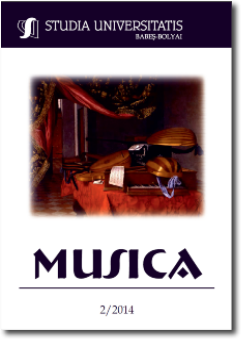THE PERFECTING OF THE ROMANIZATION PROCESS AND ITS INFLUENCE ON THE MUSICAL LIFE IN THE REPUBLIC OF MOLDOVA
Keywords:
Byzantine music, Romanization process, Modova, sacred music, musical ArtAbstract
The spiritual history of the Republic of Moldova has been permanently marked by an original and ancient musical art, incorporated in an infinite array of emotions. With roots in the most ancient times, new musical strata were added to the folk melos, in time, multiplying and continually diversifying the musical landscape. The Byzantine music is the essential part of Moldova’s artistic and cultural past. It has been the stepping stone in the development of the Romanian sacred music. Being a part of the Romanians’ cultural past, it has developed and has been transmitted from generation to generation, in their own traditional spirit.
References
Erbiceanu, Constantin, The History of the Metropolitan Seat of Moldova and Suceava and of the Metropolitan Cathedral in Iaşi, Bucharest, 1888, p. 345-346.
Macarie, Hieromonk, Irmologion or Musical Book of Hymns, Vienna, 1823, p. VI.
Pann, Anton, Theoretical and Practical Basis of Church Music or the Melodic Grammar, Bucharest, 1845, in his printing house of church music, p. XXXV – XXXVII.
Rom. Ms. #4305, f. 3112, the Romanian Academy Library.
Vasile, Vasile, The History of Byzantine Music and its Development in the Romanian Spirituality, vol. II, Bucharest 1995.
Downloads
Published
How to Cite
Issue
Section
License
Copyright (c) 2014 Studia Universitatis Babeș-Bolyai Musica

This work is licensed under a Creative Commons Attribution-NonCommercial-NoDerivatives 4.0 International License.



